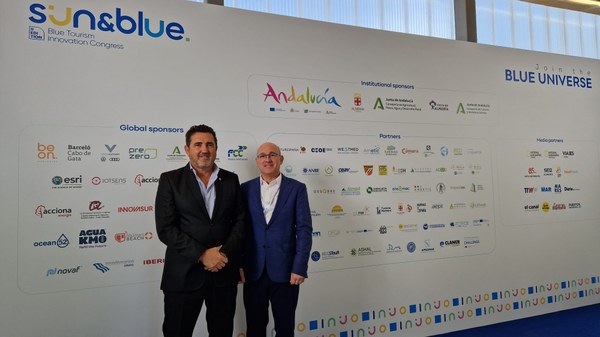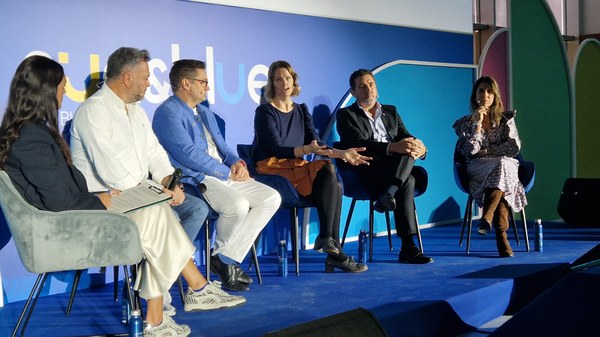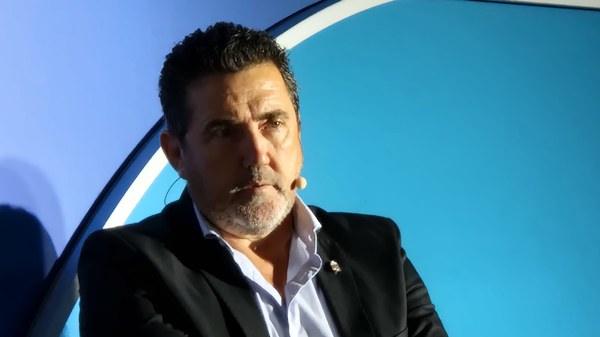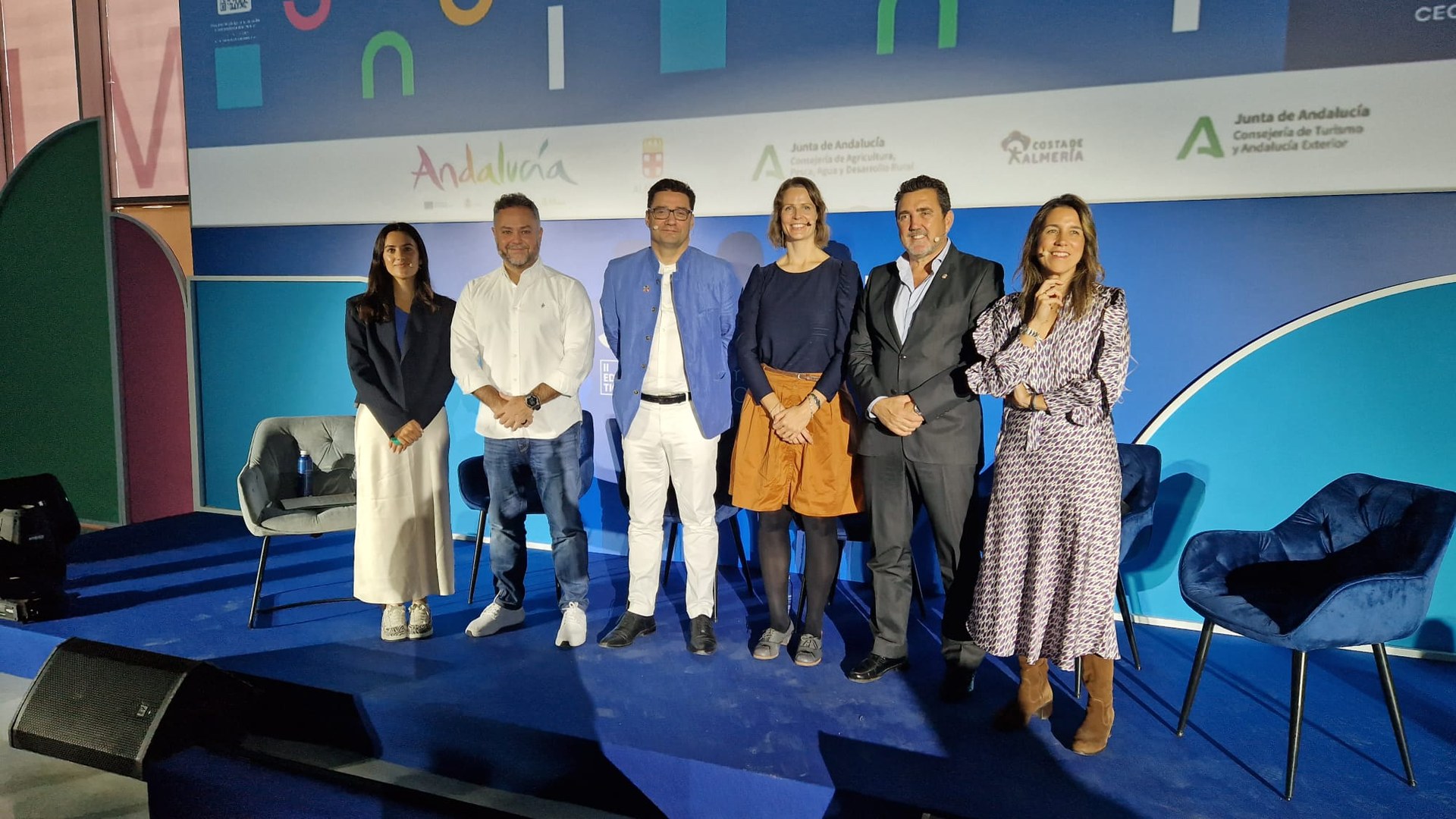
- The mayor Juan Antonio Amengual participates in the Guardians of the Coast panel: pioneering practices for sustainable coasts
- The second edition of the SUN&BLUE Congress brings together 900 attendees of 21 nationalities
- It is the most important international meeting of blue tourism held in Spain
The mayor of Calvià, Juan Antonio Amengual, has presented this Thursday the environmental conservation strategies and their relationship with tourism and economic activity applied in the municipality. He did so during his intervention in the Guardians of the Coast panel within the framework of the SUN&BLUE Congress held in Almería.
The second edition of the SUN&BLUE Congress is held at the Cabo de Gata Exhibition and Congress Palace – City of Almería. This is the most important international meeting of blue tourism that comes to Spain with the participation of 900 attendees of 21 nationalities, 169 speakers, 36 round tables, 11 conferences and a programme of parallel events. Blue tourism is defined as a tourist approach that prioritises the conservation of marine and coastal ecosystems, while promoting the sustainable development of local communities. This strategy not only seeks to reduce the environmental impact of tourism, but also to revalue the cultural and natural wealth of coastal destinations.
The mayor's intervention was based on the main axes of municipal management of beaches and the coast: the adaptation of services on the beaches to the responsible tourist offer and to the good use of citizens; zero waste and the commitment to water regeneration; the fight against microplastics that end up in the sea; awareness, commitment to volunteering and collaboration with other institutions, social entities and private companies; and the management of posidonia on the coast.
BEACH SERVICES
Calvià has been revalidating the 15 Q flags for Tourist Quality awarded by the Institute for Spanish Tourist Quality (ICTE) for two years. It is the third municipality in Spain and the first in the Balearic Islands. 1 in every 5 kilometres of beaches in Mallorca recognised with the Q belong to Calvià.
This year, the elimination of motorised items on the beaches has begun. With the exception of Magaluf beach, recreational activities with motorised boats such as the popular banana boat rides or parachute towing with a motorboat are not permitted on the rest.
The beaches have also been re-marked to increase the bathing area from 90 to 200 metres, the maximum permitted by law. In these areas, the anchoring of boats is not permitted. The buoys are equipped with ecological anchors to protect the seabed.
POSIDONIA MANAGEMENT
In Calvià, the most demanding posidonia cleaning protocols are applied through the public company Calvià 2000. This is a procedure that seeks to preserve the environment as much as possible, retain sand on the beaches and guarantee the natural cycle of posidonia. In last year's campaign, 4,600 tons of posidonia were removed and stored in municipal tents. Once dry, the weight dropped to 2,600 tons, which were replaced on the beaches after the tourist season.
WATER CYCLE
The Santa Ponça ERA (water regeneration station) alone can save up to 10 million litres of water per day. It has the capacity to produce more than 20,000 cubic metres of regenerated water, of which 10,000 (quality 1.1) are suitable for watering private gardens, parks, street cleaning, toilet cisterns and sports fields, and the rest (quality 2.1) for golf courses and agricultural irrigation. This means a capacity to regenerate the waste water produced every day by a population of 118,000 inhabitants. All the use of regenerated water translates into savings of drinking water from the ordinary network. The regenerated water network is constantly expanding.
Calvià has a parallel regenerated water network of 55 kilometres that crosses the municipality, which allows the irrigation of public green areas. Only on the longitudinal axis of the municipality, the Paseo Calvià, there is a 24 kilometre network for the irrigation of 100,000 square metres.
Work is underway on a 17-kilometre extension project with a budget exceeding 4 million euros provided by the ITS (Sustainable Tourism Tax). The aim is to reach 914,000 square metres irrigated with regenerated water.
MICROPLASTICS
Another aspect in which Calvià has set the standard in terms of innovation is the concern for the problem of microplastics that reach the sea, affecting the environment and the food chain. The European Commission has set a deadline of eight years until 2031 for there to be no more artificial grass football pitches with the current system. They must be replaced with alternative materials that are not plastic.
The Julián Ronda field in Costa d’en Blanes is the first in the Balearic Islands and the third in Spain to be equipped with this sustainable and environmentally friendly technology. The new artificial turf is state-of-the-art. The main novelty is that it includes an organic filling of granulated corn, instead of doing it as it was done until now with microplastics. The corn granules are biodegradable and harmless if they reach the sea.
DTI – SMART TOURIST DESTINATION
Designs and implements a management system in the city that allows the necessary data to be available to obtain strategic information that helps to know and understand visitor behaviour, and amongst other aspects, analyze the possible evolution of tourist activity both on the part of the tourist offer, as well as tourist demand and the markets.
The protocol was signed in 2022 and is currently 85 percent complete. It is budgeted at 4 million euros, of which 60 percent corresponds to Next Generation funds and 40 percent to the Town Hall.










